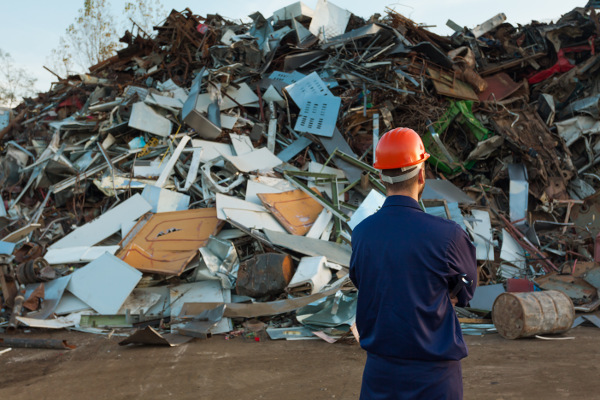What Makes Industrial Scrap Metal Unique
 When it comes to recycling industrial scrap metal, industrial companies face some unique situations that can present different issues than in other sectors where recycling scrap metals is common.
When it comes to recycling industrial scrap metal, industrial companies face some unique situations that can present different issues than in other sectors where recycling scrap metals is common.
Metal Types
Though the majority of scrap metals produced in the industrial sector are ferrous, what is available for recycling is strongly based on what the company works with. A plant manufacturing heating or cooling system may have scrap copper from heat exchangers and refrigerant lines, while a plant that creates catalytic converters may have aluminum, steel and even platinum scrap from their manufacturing process.
To make things even more confusing, there is a wide variety of ferrous metals that are used in manufacturing, depending on the end use. Partnering with a scrap metal recycling company that understands these differences is vital to getting the best possible price for the scrap you’re producing.
Sheer Volume
Most industrial companies have concerns over scrap handling, storage, and pickup because if the scrap sits too long, it impacts their factory’s ability to operate. With over 130 million metric tons of scrap metal recycled in 2013 alone, we understand your concerns! Because of the sheer volume of industrial scrap metal produced by manufacturers, it’s vital to have a good plan in place that has been customized to the industrial partner to create economy of movement, storage that doesn’t interfere with production and transportation options that takes the pressure off the plant manager.
Effect on the Economy
You knew that American manufacturing was big, but did you realize that it employed 17.6 million Americans, in addition to nearly another half million working in recycling? Recycling metals ads over $105 billion in economic activity every year, which in turn is spent on more manufactured goods. Recycling and manufacturing support each other in an amazing fashion.
Why Partnering is Better Than Going It Alone
Many industrial companies that don’t recycle their scrap metal do so because they think they have to do everything themselves when it comes to dealing with moving, storing, transporting and selling the scrap. But quality scrap metal recycling companies know they need to provide more services to their clients than the average junkyard scale and a check. By partnering with a quality scrap metal recycling company, you can work with them to develop a plan that works for your company, your factory and your situation while improving your overhead by reaping the benefits of recycling metal.
Going Green Equals More Green
Every industrial company has had to deal with the nightmare of environmental issues. But recycling helps mitigate the environmental damage your manufacturing processes may cause, giving you the benefit of being a “green” company. But going green means making some money off your scrap metal, so you get more green to lower your overhead in the long run.
By setting up a plan for scrap metal recycling at your industrial site, you’re not only improving your bottom line, you’re helping the environment. Talk to a scrap metal company today to find out how to set up a recycling plan that works for your site.

Comments are closed